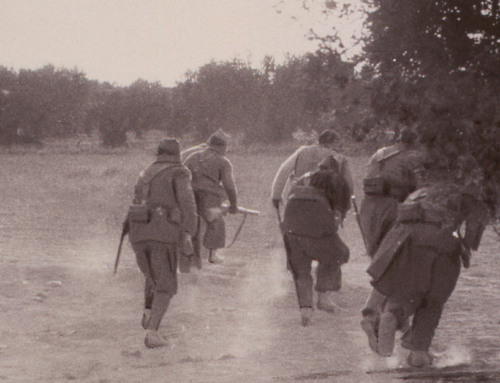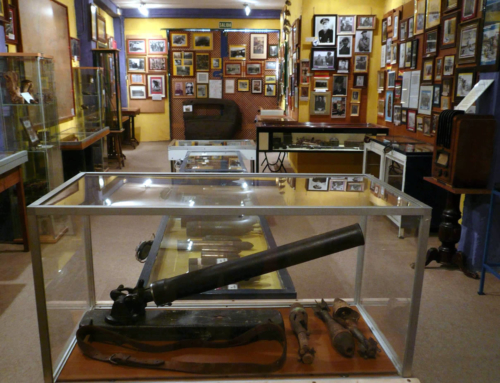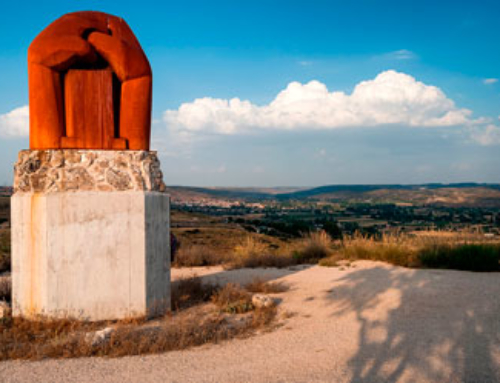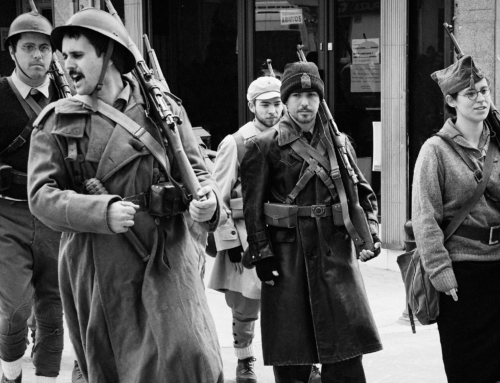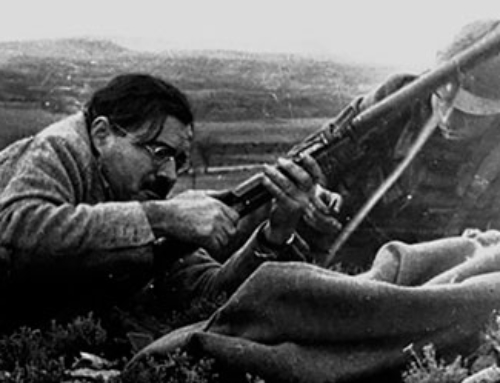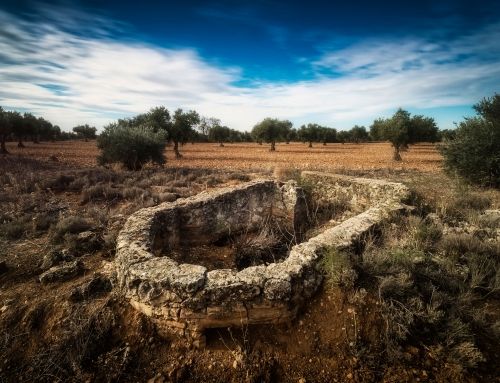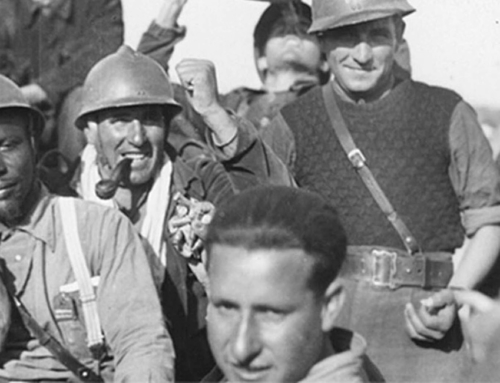Project Description
Live in the Frontline
June 17,1937.
“We position the barrel so that it is camouflaged. We slept in the shacks in the trenches. A strange sensation when hearing the bullets whistling over our heads and pounding on the earth sacks. I sleep soundly all the time. I get up at 0600. The Spaniards give us coffee. We explored the trenches. It’s a huge maze of streets, communication trenches and shantytowns… Everything is an incredibly stupid, primitive, dirty and barbaric affair. Food is good, but we have little water and we can’t wash up. Sporadic fire all day long. Engineers are supposed to come overnight to improve the position of our canyon and improve the trenches a little bit.”
Testimony of Fred Thomas. Volunteer of the British Battalion.
Living Conditions
In the trenches, living conditions were uncomfortable and very harsh. The months pass slowly with many moments of boredom and some moments of terror. The troops did not remain in the front line continuously, but rotated between the different defensive lines from time to time, although in front of the Jarama some units came to spend five months in the 1st line of fire, with only a couple of days off in Madrid or a few hours in Morata, suffering a very big wear.
With the rain, cold and mud, the living conditions in the trenches were noticibely harsher. With the rains, the trenches were flooded with water, although curiously there was a lack of it to drink and wash.
In the first moments after the battle, shelters were built with the intention of having a place to sleep on humid nights or where they could shelter themselves from the scorching sun, but these were sunk at the first bombing, due to the lack of wood to prop them up. It won’t be until later on when these conditions improve.
Due to the cold, there were many casualties caused by typhoid, bronchitis, pneumonia, flu and rheumatism. The chilblains were frequent, coming out in hands, feet, nose and ears. Many casualties were also caused by the “trench foot”, due to the long exposure of the lower extremities to cold or water, or by sweating when not changing socks and boots for a long time. Another major problem was dysentery, caused by polluted water.
The Food
The food arrived almost always cold on the front line. The diet was not very varied and often based on chickpeas and peas, which were thrown cod, mutton or sheep meat, in addition to the eternal canned sardines. The soldiers knew that an offensive was coming when the food was getting better.
Rats and Lice
The rats were the queens of the trench. They were everywhere. They would cross the soldiers’ faces as they slept and urinated in the water, contaminating it. Hunting was organized to try and kill them.
The lack of hygiene meant that in about 10 to 15 days a soldier was infested with fleas and lice. The de-liceing would become almost a social act and was done in a regular way, although without ever getting rid of them.
Entertaiment
Soldiers to distract themselves do what they can: they play football, dominoes, or in the case of international volunteers, black-jack or poker. Boredom was also fought by writing letters to home or reading newspapers that were mostly outdated and sometimes exchanged with the enemy. They talked about issues of sex, football, what they would do when they returned home, food, political issues, or sleeping and drinking… The alcohol didn’t lack in the front of the Jarama, because apart from the daily ration of wine, you could get cognac or aniseed.
“Waking up with the first lightsof dawn, breakfast, Company inspection, cleaning the armament, digging trenches, and opening and filling latrines, lunch, afternoon call, nigth patrols… They gave us nothing to read except propaganda pamphlets, and the few books that were there, we had read them too many times.”
Testimony of Harry Fisher. Abraham Lincoln Battalion volunteer.


